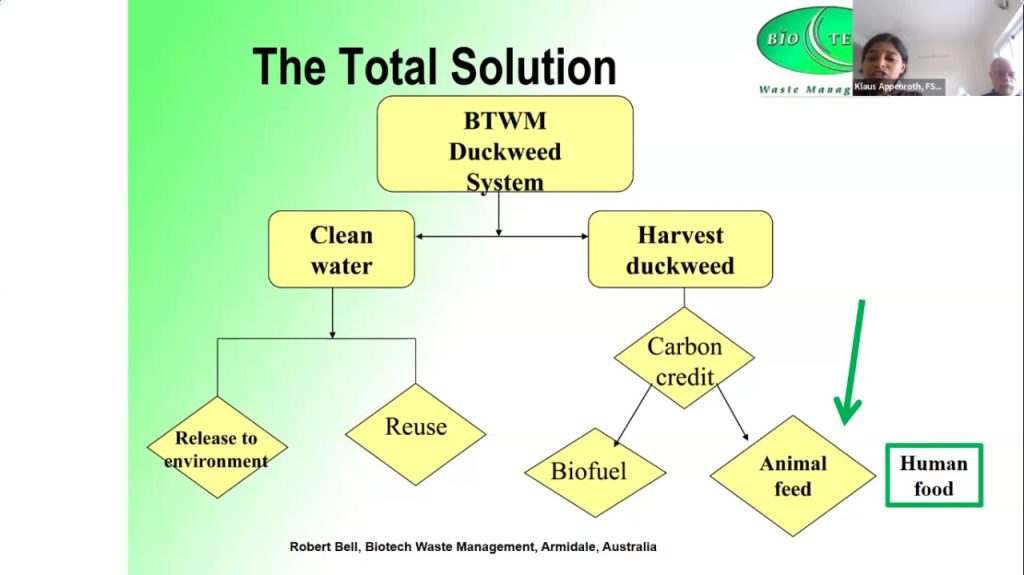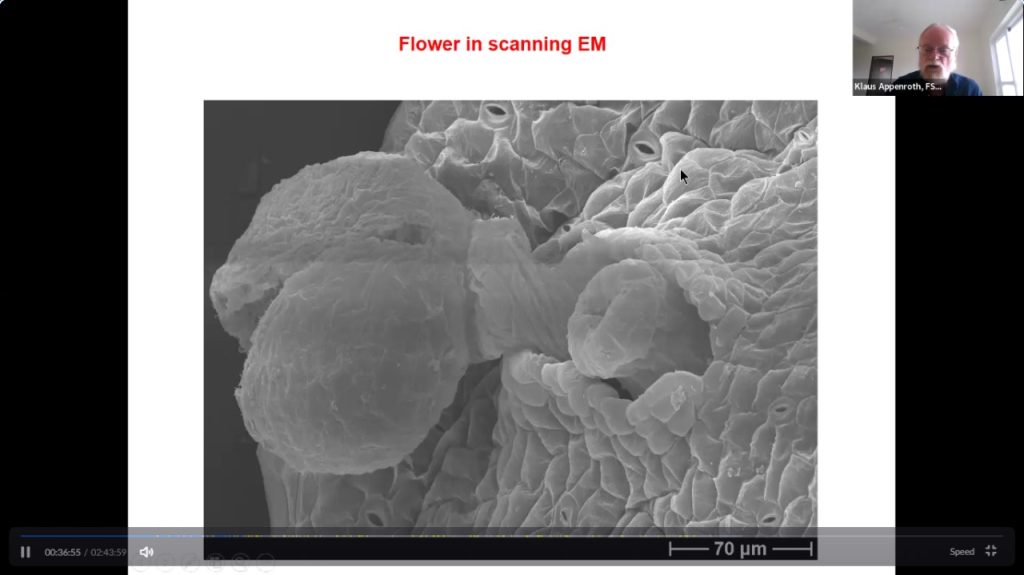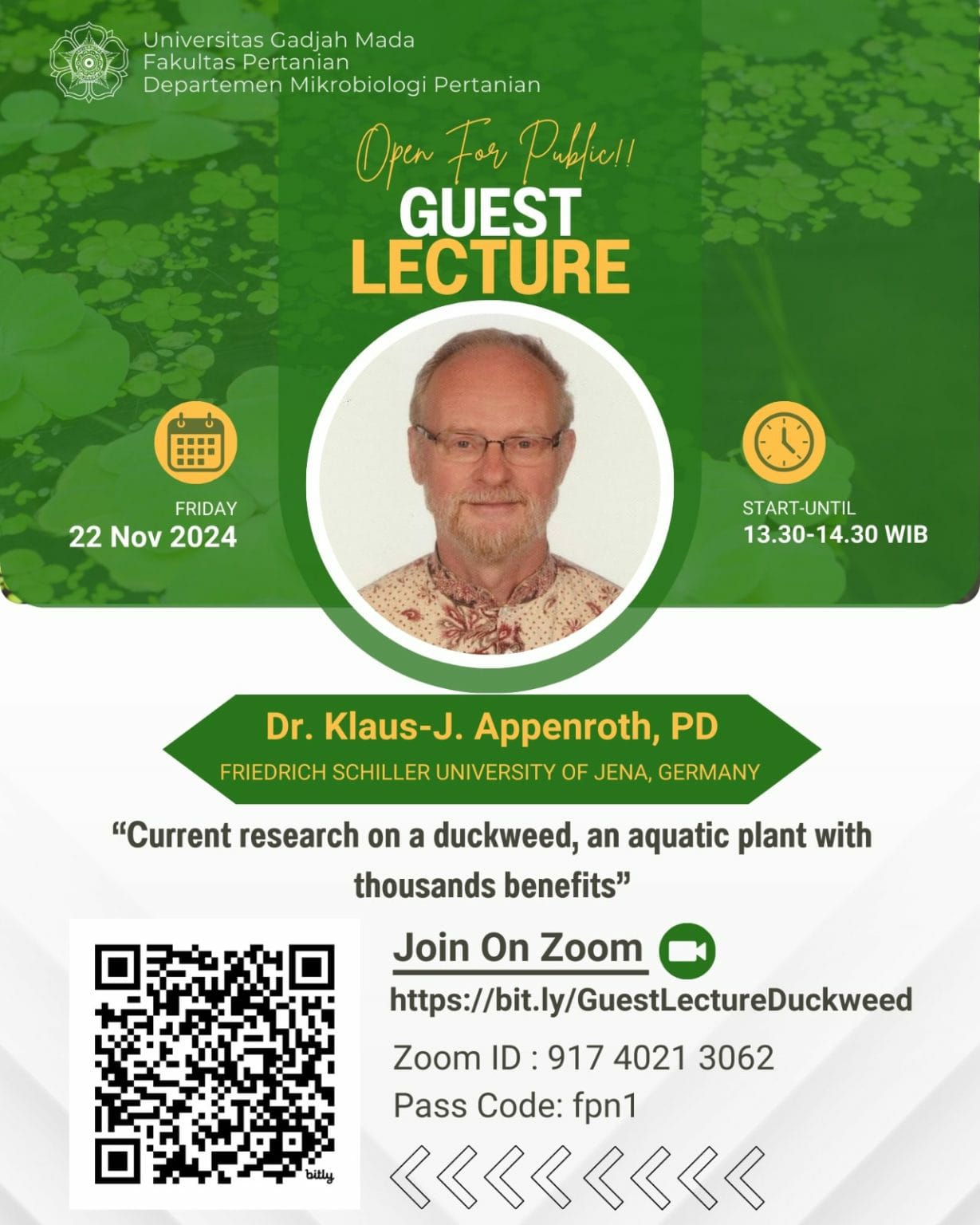
The Department of Agricultural Microbiology, Faculty of Agriculture, Universitas Gadjah Mada (Faperta UGM), held another guest lecture titled “Current Research on Duckweed: an Aquatic Plant with Thousands of Benefits” on 22 November 2024. The event was conducted virtually via Zoom Meeting and featured two renowned speakers: Dr. Klaus-J. Appenroth from Friedrich Schiller University of Jena, Germany, and Dr. K. Sowjanya Sree from Banaras Hindu University, India.

Prof. Ir. Irfan Dwidya Prijambada, M.Eng., Ph.D., a lecturer at the Department of Microbiology, opened the session by expressing his appreciation to the speakers. He also shared that duckweed has been utilized in UGM’s research on bioremediation of agricultural land, including studies on microbial symbiosis with duckweed roots to support its growth.
“Thank you for taking the time to deliver this guest lecture. We offer a course titled Bioremediation of Agricultural Land because we are aware that farmland is often contaminated by hazardous chemicals that threaten soil health. Over the past few years, we have used duckweed to remediate metals like cobalt, chromium, and mercury. Our department is also exploring the mutualistic collaboration between microbes and duckweed to enhance the plant’s growth and effectiveness in remediation. We greatly look forward to gaining insights and new knowledge from your presentations,” explained Prof. Irfan.

The lecture continued with a presentation by Dr. Klaus-J. Appenroth. He emphasized that duckweed, a member of the Lemnaceae family, is the fastest-flowering plant in the world and can grow without fertile land. Duckweed is highly effective at cleaning polluted water, reducing carbon emissions, and can be harvested quickly. Dr. Klaus also highlighted its significant potential as biofuel and animal feed due to its high nutritional content, including vitamin B12, which is produced through symbiosis with bacteria.
“Living with duckweed is delightful,” said Dr. Klaus, referring to the plant’s potential as an innovative ingredient in food products such as cakes and ice cream.
Meanwhile, Dr. K. Sowjanya Sree discussed the human nutritional potential of duckweed. Various Lemnaceae species are rich in protein, fat, and essential amino acids, making them especially beneficial for preschool-aged children. Duckweed is also abundant in both saturated and unsaturated fatty acids and minerals, which can be tailored through its growth medium.
“Duckweed can be transformed into smoothies, salads, and even nutritious omelets,” explained Dr. Sowjanya.
Through this guest lecture, the Department of Microbiology at UGM hopes to strengthen research collaborations and develop duckweed-based innovations to support food security and environmental sustainability. This guest lecture is a tangible step by the Faculty of Agriculture in advancing several Sustainable Development Goals (SDGs), including SDG 1: No Poverty, SDG 2: Zero Hunger, SDG 3: Good Health and Well-being, SDG 4: Quality Education, SDG 6: Clean Water and Sanitation, SDG 7: Affordable and Clean Energy, SDG 15: Life on Land, and SDG 17: Partnerships for the Goals.
Author: Agrit Kirana Bunda
Editor: Desi Utami
